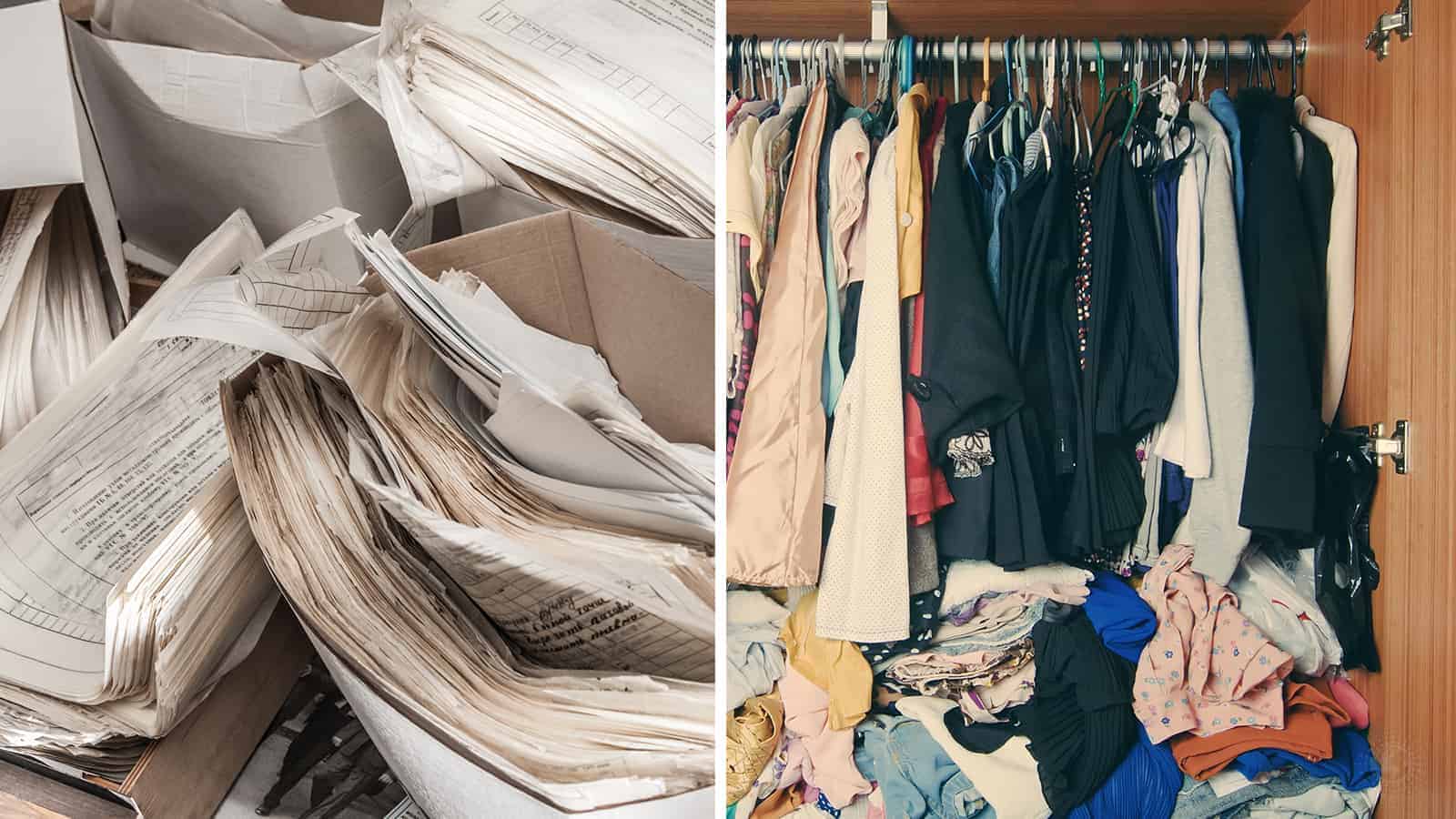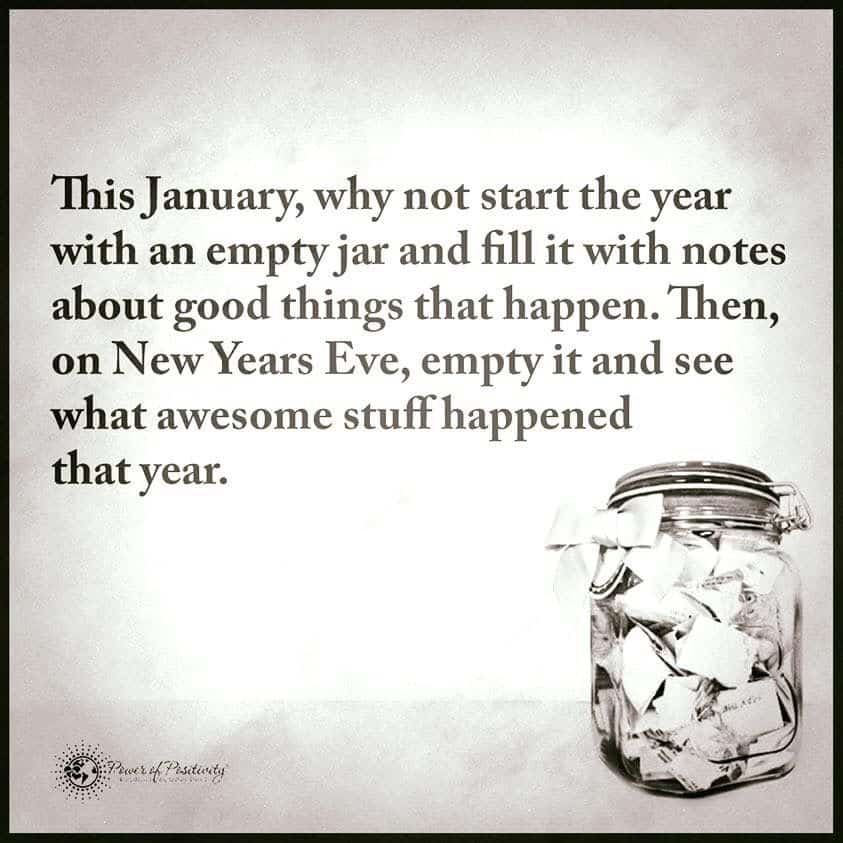You decide to take charge of your life. Your first step is to get rid of the excess stuff around your house. But where do you begin? Just the thought of decluttering can be overwhelming. Chances are, at least twenty useless things are cluttering your house and mind. Here’s how to find the clutter and get rid of it.
Why is clutter bad?
What’s the problem with clutter? A study in Japan looked at 450 undergrads’ living space. They found those students who had a problem with decluttering and organizing lived in disorganized homes and had low self-esteem. Researchers found that a cluttered environment hinders your ability to focus completely. Your attention is distracted, so you can’t process information as well. In another study, researchers used an MRI to measure a person’s brain response to organized and disorganized things during a task. Every test showed that an individual could process information and focus better when less clutter was involved. They also found that people tend to be less irritable and less stressed in an uncluttered environment.
What other ways can an uncluttered home and environment help you?
Of course, there are many benefits to decluttering your home. Here are just a few.
- You save money because you’re not buying things you already own
- Save time, not laundering, organizing, or looking for your things.
- You’ll have more confidence since you know where everything is when you need it.
- No more lost things.
- You suddenly have more space in your house.
- You‘ll have more energy since you aren’t taking care of stuff all the time.
- You’ll want to invite people over to your home without embarrassment.
How do I know it’s time to declutter?
You may wonder if you should declutter. Here is a foolproof method to tell if you need to declutter your home.
- Clothes are lying all over your bedroom or bathroom floor.
- You have duplicates and triplicates of most things.
- You are considering renting a storage unit for all your stuff.
- Every closet in your house is overflowing with stuff.
- There are a lot of things sitting around.
- Your desk, nightstand, and kitchen table are covered with stuff.
- Before you sit down, you need to move stuff off a chair.
Here are twenty useless things that clutter your home and mind
Clear unnecessary stuff out of your home to clear your mind.
1 – Hangers from stores
It’s easy to ignore things we use daily, like hangers. Over time, they accumulate. The free clothes hangers you get at stores aren’t even that great for your clothes. They’re usually made of wire or a thin plastic that breaks easily. The free hangers aren’t usually big enough for your clothes to hang properly. The best thing to do is get rid of all those cheap freebies and purchase better-quality hangers. You can give the clerk the hangers when you buy clothes at stores. They are usually happy to get the hangers back, and more importantly, it frees your home of clutter.
2 – Mismatched items
Do you have that one sock you love so much that you keep it, hoping that someday you’ll find its match? It could be a favorite earring or glove, but in reality, you may never find its match. Keeping these things only adds to the clutter in your drawers or jewelry box. Why not turn it into a necklace if you have a precious earring? Or, if you have a mismatched gold earring, you could sell it for cash. There are some reputable places online with good reviews that will pay well. But you may need to take the plunge and throw away those lonely socks, gloves, and earrings.
3 – Old underwear
Old bras or underwear can pile up in your drawers. You may be so used to digging through the pile. You don’t think twice about it. If you have many older underthings, it’s probably time to let them go. Old bras lose their shape over time, and underwear gets stretched out. Having good-fitting underwear can change the way your clothes hang on you. So, take a deep dive into your underwear drawer and sort out the old and new. While looking through your underwear, check out your shapewear and other underpinnings to see if they need repaired, replaced, or thrown out entirely.
4 – Old linens
It’s easy to accumulate sheets, pillowcases, and blankets over the years. You may not even notice how fuzzy the sheets feel or that tear in the corner of the blanket on your bed. But when you stop and take a good look, you may be surprised at how dog-eared your linens look. It may be time to throw out old linens and purchase new ones. You may be able to donate your old linens and towels to an animal shelter. You can also cut up some old towels to clean your car.
5 – Boxes
Are you a box collector? Do you love keeping things in their original box? These boxes take up extra space, and when you think about it, they don’t add any value to the item. Take a look around. If you have boxes, you can easily recycle them. Plus, you may find out that you aren’t using the item inside the box either, so that you can recycle or donate it, too.
6 – Clothing or shoes that don’t fit your lifestyle
Over the years, your tastes and lifestyles change. What you wore in college doesn’t cut it for today’s job. You may love some of your old clothes. It’s easy to get emotionally attached to clothing or shoes with sentimental attachments, but you need to move on from them at some point. When you insist on wearing your old things, you look disheveled, out of style, and older. It may be time for a serious assessment of your clothing. Set up four boxes:
- Throw out: Worn-out, frayed, or faded clothing should go in the trash can.
- Donate: Donate to charity organizations or shelters where they need clothing.
- Sell: If you have clothing that doesn’t fit your lifestyle but is in good condition, you can sell it. There are several good online sites where you can easily sell clothing.
- Keep: Only keep what you will really wear. Be sure you aren’t giving in to sentimentality but need the piece to help your wardrobe.
Once you look at your empty closet, you’ll be surprised by how light you feel. It’s like your brain is suddenly free from the clutter of your closet.
7 – Phone cases, cords, chargers
Smartphone cases, chargers, and cords quickly accumulate over the years. If you aren’t using these things, ask yourself which ones you could get rid of. It may be a good idea to keep the chargers if you’ll use the same brand later; otherwise, throw them away, donate them, or give them to someone else who needs them.
8 – Jewelry you don’t wear
If you enjoy jewelry styles and trends, stick with cheaper jewelry to get rid of when the trend is over. If you have more expensive jewelry that you don’t wear, find someone in your family who will love it or sell it, or you can have it melted down and made into another piece of jewelry.
9 – Paper
Do you have old warranty papers, notes, or cards lying around? Even if you have these papers neatly filed in your file cabinet, you should sort through them and get rid of them. If some cards have sentimental worth, scan them to save them digitally.
10 – Expired items
It’s incredible how many things in your house are past their expiration date. Not just food that expires, but spices, cleaning products, makeup, and medications all have dates when they shouldn’t be used anymore. Go from room to room, pull out products, and check to see if they’re expired. Even if it’s something you’re using, throw it out. Using these products could pose a health risk.
11 – Broken toys
Face it. Toys don’t last long. Either they break, or your child loses interest in them over time. Take stock of your kid’s toys. If a toy is broken, throw it out. If it still works, you can donate it or sell it. Encourage your child to help you if they’re old enough to understand. Your child can buy a new toy with the money you get from selling the toy. While at it, reorganize the bedroom or toy room with them. Make organizing and decluttering a fun experience that you do together. This can teach your child to enjoy decluttering themselves as they get older.
12 – Dishes, plates, and cups you dislike
Perhaps you dislike the old multi-colored plates from your great aunt, but you feel bad getting rid of them. You may think that someday you’ll love these dishes, but it’s not likely. You can try to find someone in your family who wants them, but it’s probably best to sell or donate old dishes to charity. The same goes for old chipped dishes, cups, and mugs. All those things in your kitchen cabinets take up space in your house. Don’t linger over them. Throw them out right away.
13 – Old muffin tins, saucepans, or bakeware
Old bakeware that’s turned dark and ugly isn’t worth keeping. If you have a favorite saucepan or muffin tin, you may want to keep it. But old bakeware should be thrown out and replaced with new ones. Perhaps you have two of every kind of baking dish. It’s time to donate or throw out one and keep one. Unless you’re a professional baker, there’s no need for two or three of every piece of bakeware in your kitchen.
14 – Books you aren’t going to read
Some people love to keep books. If you re-read your books, it’s a good idea to keep them, but if you’ve never read the book or you won’t reread it, then say goodbye to them. Many libraries are looking for books. They sell them to get money for the library. Charities, nursing homes, and some schools love books, too. They’ll be happy to take them off your hands.
15 – Trinkets, souvenirs you don’t like
Maybe that cute little souvenir you got at a theme park when you were a kid is now cracked and faded. Cheap little things you got from vacations, friends, or relatives can pile up. They are dust catchers. If you want to keep them, find a way to display them by hanging them on the wall or displaying them in a case. Otherwise, throw them out, donate them, or sell them because they’re taking up space.
16 – Stuff you plan to get “fixed” someday
Everyone hangs on to things they plan to fix someday. Whether it’s your old watch or tea kettle from your grandma that quit working years ago, these things take up space in your closets, garage, or basement. If you really want it, take it to get it fixed immediately. Otherwise, through it out.
17 – Dried up nail polish, old perfume, empty pens
Look through your nail polish, pens, and perfume. If they look dried out, throw them out immediately. These things are easy to replace.
18 – Old emails
Your computer needs decluttering as much as your house. Old contact lists, emails from people you don’t know, and email notifications can build up over time. One person found they had 25,000 emails they needed to sort through. You may be surprised to find an email you missed. Try to declutter your emails at least twice a year to keep on top of them.
19 – Storage containers with missing lids
The elusive lid to a storage container has gone missing again. Time to sort through all your plastic and glass storage containers. If they don’t have a matching lid, get rid of it. Who knows what happens to those missing lids, but you probably need to declutter your storage containers at least every six months.
20 – Junk drawer items
If your junk drawer is taking on a life of its own, it’s probably time to sort through it. Find a home for things that have landed in the junk drawer. You can buy convenient organizers for your junk drawer so it doesn’t get too full.
How to know if you have a hoarding problem?
If you have a tough time letting go of everything, and your house is proof of it, you may have a hoarding disorder. It’s a growing problem in the United States. Getting help with this disorder can improve your life and reduce the clutter in your home. If you think you may have a hoarding problem, get help right away.
Final thoughts on freeing your home from clutter
Clutter is detrimental to your mind and body. It makes you feel stressed as well as disrupts your focus. Everyone has useless things lying around their house that need to be thrown out or donated. Why not get started decluttering today? Start small. You don’t need to go through everything on this list, but you can work down the list over time. You’ll be surprised how good it feels to have less stuff. Plus, you’ll find space you didn’t know you had in your home so you can enjoy your clutter-free home.
















 Community
Community

